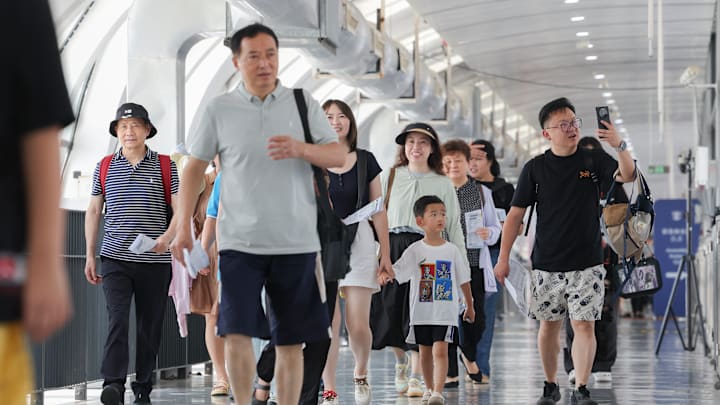I'll never forget my latest trip to Switzerland. It had already been a hectic day due to a train going in the wrong direction and arriving seven hours late for our reservation. Getting off in Bern, we found someone to direct us to Templestrasse and met a nice man who escorted us from the main gate to the dormitories we would be staying in that night. By the time we left for Paris the next evening, I had asked for directions in German, spoken French to the receptionist, greeted fellow travelers in Portuguese, asked for breakfast in Spanish, attended a worship service in Italian, and talked to my mother in English.
Never before or since have I had to speak so many languages in the course of twenty-four hours, but decades of traveling internationally have taught me that there are so many things to learn beyond "Wo sind die Toiletten" or "Me puedes dirigir al Hotel de la Sagrada Familia?" Here are some travel tips based on the most essential things I learned before entering a country.
Health and Safety
It's never ideal to get sick on vacation, but it does happen. When hiking the Inca Trail, what I thought was altitude sickness turned out to be a high fever and infection. I had such bad heat exhaustion in Austria that I began having respiratory issues. These are relatively minor problems, but it's helpful to be able to ask for help and understand instructions.
More importantly, know how to describe allergies and how to avoid triggering them. If you have a pre-existing condition, learn the basics of communicating a need or have a doctor prepare something like a medical alert should you require urgent medical attention.
Bon Appetit
I'm not a picky eater. I try everything I can and also enjoy pushing my limits where spiciness is concerned. If you're not willing to point at an item on the menu and take a chance on what you think it says, it's best to learn the words for various meats, vegetables, etc.
This also goes back to the need to know if you'll eat something delicious and then break out in hives because you didn't know the contents. If you're allergic to something, absolutely know how to look for it on a menu. In my case, I still tell the story of when my traveling companion knew I was craving lemonade and bought me a lemon-flavored beer because she didn't read German. For someone whose religious beliefs don't prohibit alcohol, this would have been a different story, but I was able to recognize it before I drank any and it's something we laugh at years later.
Ou/dove/donde/wo
Travel apps are making life easier every day, with anything from GPS to detailed maps of famous areas. Athens makes sightseeing easy by marking its subway stops with drawings of the tourist attractions. In Messina, a friend and I spent our day in Sicily by walking between every cathedral we could see across the city from the highest vantage point.
Be prepared for things to be less simple. If someone can't tell you the address of a museum, they might still know that you can take a left on the next street and look for a store with a green sign out front. On the other hand, I once struggled with landmarks because my guidebook navigated by blue huts near a lake and taking a left near a field, but failed to realize the huts would be painted green now and someone built a house in that field.
Know words for things like pedestrian walkways, bus stops, etc., but also find out what you'll need when you get there for currency exchange, ticket purchases, and so on.
Customs
This is more of a behavioral recommendation than a linguistic one, but be aware of the culture you're entering. On my first visit to the Vatican, our tour guide had a scarf stashed in her purse so she could modestly cover her shoulders when we entered a church.
Years later, I knew that it would be respectful to cover my head when visiting holy places in Turkey,, so I bought a scarf for that purpose. When we got to one mosque, we found signs asking us to cover our heads and offering the use of scarves that the mosque had provided. Had we not been forewarned, we might have caused offense if we didn't understand the sign outside the entrance.
This is again a situation where pictographs can help, but this last interaction happened in a city where me knowing how to ask in Turkish if someone spoke English just got me laughed at, so it's advisable to put in extra effort just in case.
I hope these tips will come in handy next time you're a stranger in a strange land.
